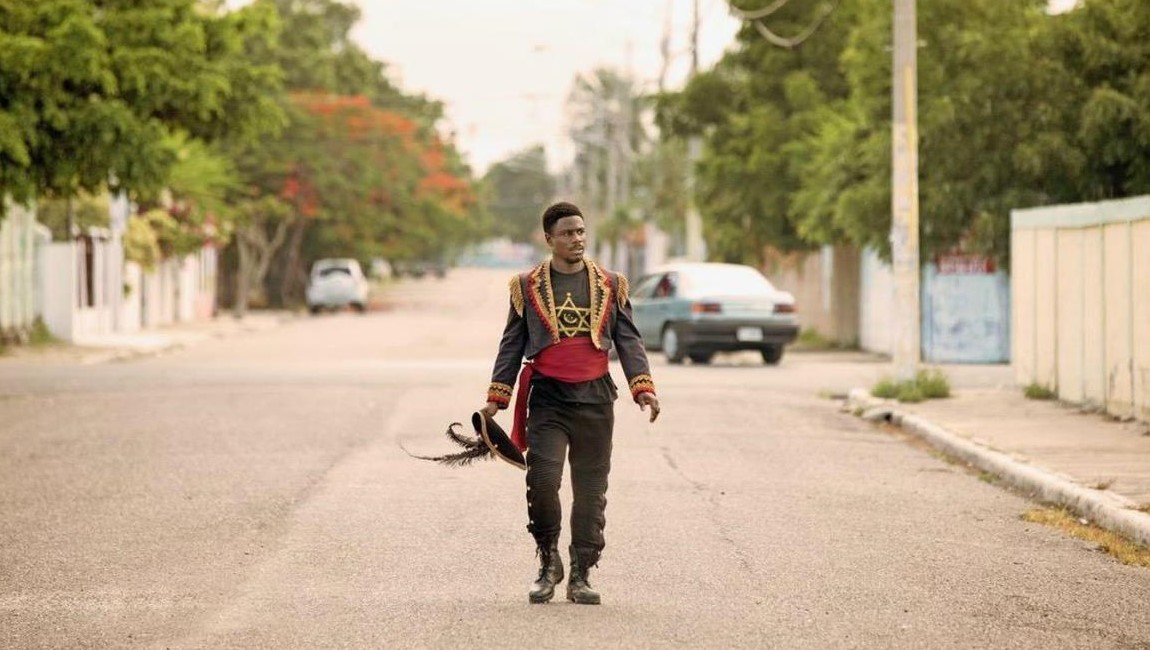Like many films gunning to establish an immediately serious tone, Angga Dwimas Sasongko’s 13 Bombs begins with sobering news reports. One newscaster outlines Indonesia’s slow economic growth, falling exports, and the Minister of Finance’s position that its people must frugally manage the downturn. As the radio plays, a mysterious man going by Arok cocks a gun and heads out for a mission. Another reporter references the president’s statements on the recession. She claims to desire protecting the public over the financial sector, but certainly doesn’t convince the security guard complaining to his partner about his ballooning mortgage. These two are about to be blown to hell as the mysterious man appears with an RPG. He and other militants gun down the remaining guards — the score during the mayhem heavily evoking Hans Zimmer’s theme for The Joker in The Dark Knight — and then blow open the armored truck so any nearby bystanders can stuff their pockets with the money inside. The local police contact the Indonesian Bureau of Counterterrorism; so begins a cat-and-mouse game to defeat the militants, who have twelve more bombs planted around the city. Oscar (Chicco Kurniawan) and William (Ardhito Pramono), two cryptocurrency exchange founders whom Arok involves in the conflict, along with William’s fiancée Agnes (Lutesha), are the final pieces on the board.
For a film packed with ideas, 13 Bombs is wholly lacking in subtlety. The film seems to expect the viewer to take it at face value. The dialogue, when not crippled by clunky exposition, occasionally veers into comically absurd territory as characters vocalize information that both they and the audience should instantly be able to apprehend (“Bitcoin. Stock exchange. This [conflict] must be related to the financial system.”) Not only does the uninspired score repeatedly insist on what it wishes for a viewer to feel during a scene, but it is also incessant; it plays for almost the entirety of the nearly two-and-a-half-hour runtime. The goal may have been to create a gripping audio landscape that engrosses the viewer, but the result is a repetitive, groan-inducing din that eats away at the film’s vitality. Perhaps, at least for this critic, it’s also a bit headache-inducing, as much as the consistently dizzying camera rolls that don’t produce the sort of unease they’re attempting. Other aspects — the range of solid-at-best to kind of shaky acting, the artificiality of the sets, the network drama-esque level of camerawork in the non-set piece scenes — aren’t truly issues, as they ultimately feel par for the course for a film of this ilk. Standout action and storytelling are what would elevate 13 Bombs.
The film sets out to balance the kinetic, stripped-down pyrotechnics of the low-budget DTV action film with a thoughtful exploration of the tensions between morality and ideology, the sources of extremism, and the necessity of economic revolution. The action — not including one particular duel at the climax — is serviceable, but so sauceless, so lacking in distinctive flair, that it’s not even that welcome of a treat when the bullets start flying. The biggest letdown, however, is the story’s unexpected shallowness, given the richer depths it nods to. Arok is driven by his personal loss and noble goals to commit terrible acts. The counterterrorism agency is ultimately a bureaucratic arm of the state, defending the status quo and the decency it currently supports. Oscar, William, and Agnes are stuck in the middle, fending for their lives and taking matters into their own hands. The young trio’s experiences could be said to represent one vision of the next generations’ ideal pathway to changing the future: leveraging extra-institutional energies while still respecting the structure and process of the powers that be. A shame, then, that in execution, this setup is reduced to a matchup between good guys and bad guys, with the bad guys all sharing the same tragic backstory template that comes off as lazy, while also flattening their humanity. 13 Bombs also utilizes the copout of making its villain needlessly bloodthirsty, solely to show that no matter how altruistic or revolutionary his aims may be, he has at core become (or always been) an antisocial, nihilistic monster and must be put down. This film has a narrative setup that calls attention to too many fascinating dynamics to be a film “best enjoyed with your brain powered off.” The problem is it never fleshes out these dynamics more fully or examines them more critically, instead opting for a by-the-numbers shoot-em-up template too noisy to be relegated to the background. Barely passable at best, 13 Bombs could have been a blast if it wasn’t so uninterested in what it truly had in its arsenal.
Published as part of IFFR 2024 — Dispatch 2.







